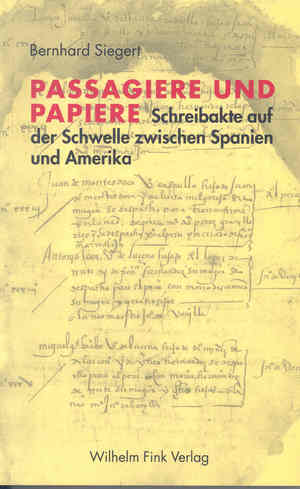Daniel Heller-Roazen: Echolalias: On the Forgetting of Language (2005)
Filed under book | Tags: · language, linguistics, literature, memory, speech, writing

Just as speech can be acquired, so can it be lost. Individuals can forget words, phrases, even entire languages, and over the course of time speaking communities, too, let go of the tongues that were once theirs, as languages grow obsolescent and give way to others. In Echolalias, Daniel Heller-Roazen reflects on the many forms of linguistic forgetfulness. In twenty-one concise chapters, he moves among classical, medieval, and modern culture, exploring the interrelations of speech, writing, memory, and oblivion. Whether the subject is medieval literature or modern fiction, classical Arabic poetry or the birth of French language, structuralist linguistics or Freud’s writings on aphasia, Heller-Roazen considers with precision and insight the forms, effects, and ultimate consequences of the persistence and disappearance of language. In speech, he argues, destruction and construction often prove inseparable. Among speaking communities, the vanishing of one language can mark the emergence of another, and among individuals, the experience of the passing of speech can lie at the origin of literary, philosophical, and artistic creation.
From the infant’s prattle to the legacy of Babel, from the holy tongues of Judaism and Islam to the concept of the dead language and the political significance of exiled and endangered languages today, Echolalias traces an elegant, erudite, and original philosophical itinerary, inviting us to reflect in a new way on the nature of the speaking animal who forgets.
Publisher Zone Books, 2005
ISBN 1890951498, 9781890951498
287 pages
review (Michael Newton, London Review of Books)
review (Dorian Stuber, Bryn Mawr Review of Comparative Literature)
Cornelia Vismann: Files: Law and Media Technology (2000/2008)
Filed under book | Tags: · bureaucracy, computing, document, governmentality, law, media archeology, media theory, technology, writing

“Quod non est in actis, non est in mundo. (What is not on file is not in the world.) Once files are reduced to the status of stylized icons on computer screens, the reign of paper files appears to be over. With the epoch of files coming to an end, we are free to examine its fundamental influence on Western institutions. From a media-theoretical point of view, subject, state, and law reveal themselves to be effects of specific record-keeping and filing practices. Files are not simply administrative tools; they mediate and process legal systems. The genealogy of the law described in Vismann’s Files ranges from the work of the Roman magistrates to the concern over one’s own file, as expressed in the context of the files kept by the East German State Security. The book concludes with a look at the computer architecture in which all the stacks, files, and registers that had already created order in medieval and early modern administrations make their reappearance.”
Originally published in German as Akten. Medientechnik und Recht, Fischer, Frankfurt am Main, 2000
Translated by Geoffrey Winthrop-Young
Publisher Stanford University Press, 2008
Meridian: Crossing Aesthetics series
ISBN 080475151X, 9780804751513
187 pages
Review (Liam Cole Young, Theory, Culture & Society)
PDF (7 MB, updated on 2016-12-23)
Comment (0)Bernhard Siegert: Passagiere und Papiere: Schreibakte Auf der Schwelle Zwischen Spanien und Amerika (2006) [German]
Filed under book | Tags: · identity, media archeology, media theory, migration, writing

Passagiere und Papiere ist ein Buch über eine vergessene Urszene der Moderne. In den bürokratischen Ritualen der Narrativierung und Verschriftlichung, durch die all jene infamen Menschen in den Status von legalen Personen initiiert wurden, die an Bord eines Schiffes nach Amerika gehen wollten, wird nicht nur das moderne Untertanensubjekt erfunden, sondern wird auch die Maske zum Träger der Person und Wirklichkeit unlösbar gebunden an ihre papierene Repräsentation. Der Krieg der spanischen Krone gegen die eigene Bevölkerung im 16. Jahrhundert, gegen konvertierte Juden und Mauren, aber auch gegen Arme und Vagabunden, produziert an der Schwelle zur Neuen Welt eine immense kleine Literatur: Ausreiseanträge, Verhörsprotokolle, Zeugenaussagen, Passagierlisten. Von 1535 an durfte niemand mehr in Sevilla ein Schiff besteigen, der nicht vorher in schriftlicher Form vor einem Richter schriftliche Zeugnisse von seiner Identität, seiner Herkunft, seinem anständigen Leben, seinen Narben und Malen erbracht hatte. Das Indienhaus, die “Casa de la Contratación”, wurde so zu einem der ersten Orte in Europa, wo das Beschrieben- und Ezähltwerden aufhörte, ein Privileg der Mächtigen zu sein, und anfing, ein Mittel der Überwachung und der Kontrolle zu werden. Bernhard Siegert rekonstruiert anhand bisher kaum erforschter Quellen aus dem Archivo General de Indias in Sevilla die Rituale und Prozeduren der Legitimation, der Narrativierung, der Registrierung und der Fiktionalisierung, die all jene durchlaufen mußten, die im 16. Jahrhundert an Bord eines der Schiffe nach Amerika gehen wollten. Auf der anderen Seite des Ozeans schließlich verzahnen sich die Passagierlisten mit Einwohnerverzeichnissen und Siedlungstopographien. Das Seßhaftmachen der Passagiere bringt rasterförmige Register und registerförmige Raster ins Spiel, die das “Am-Platz-Sein” von Menschen an ein “Am-Platz-Sein” von Lettern binden.
Publisher Wilhelm Fink Verlag, Munich, 2006
ISBN 377054224X, 9783770542246
176 pages
PDF
View online (added on 2014-6-2)

